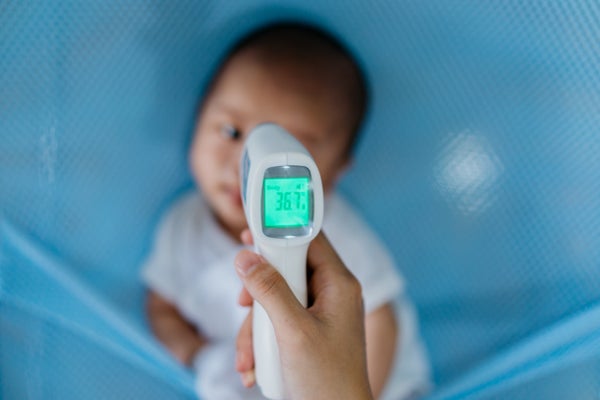February 12, 2024
2 min read
Very young children’s developing immune systems respond to the COVID-causing virus SARS-CoV-2 very differently than do those of adults
Many infectious diseases are deadly for both the very old and the very young. But thankfully, the COVID-causing SARS-CoV-2 virus rarely triggers serious illness in infants. Scientists have several theories as to why. For example, some evidence suggests babies’ immature immune systems—which lack the more targeted (or “adaptive”) responses that develop with age—mount a stronger first-line (or “innate”) response against the virus.
Now researchers have profiled the entire immune system in young children to compare their response to SARS-CoV-2 with that of adults. The results, published in Cell, show that infants’ systems mount a strong innate response in their noses, where the airborne virus usually enters the body. And unlike adults, babies don’t exhibit widespread inflammatory signaling throughout their circulatory system, perhaps preventing severe COVID.
The research team, led by Stanford Medicine immunologist Bali Pulendran, took blood samples from 81 infants (54 of whom became infected with the virus between one month and three years of age) and dozens of adults. The researchers also took weekly nasal swabs from kids and adults with and without COVID. They then analyzed proteins and gene activity in these samples to track participants’ innate and adaptive immune responses to the virus. “This sort of longitudinal mapping of the immune response of infants, to any virus, had not been done before,” Pulendran says.
On supporting science journalism
If you’re enjoying this article, consider supporting our award-winning journalism by subscribing. By purchasing a subscription you are helping to ensure the future of impactful stories about the discoveries and ideas shaping our world today.
The team found stark differences between children and adults in both adaptive and innate immune…
Read the full article here







